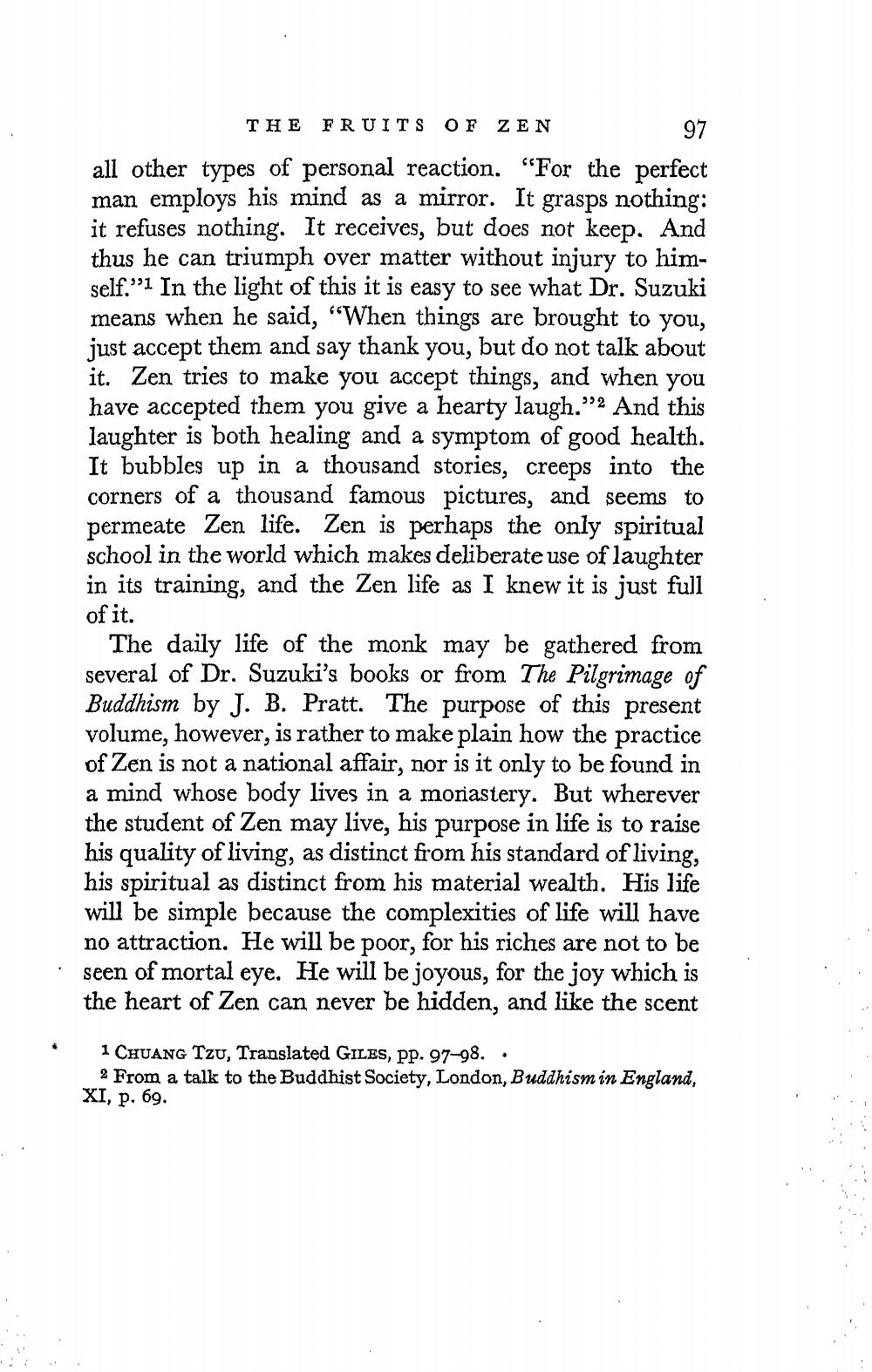________________
THE FRUITS OF ZEN
97 all other types of personal reaction. “For the perfect man employs his mind as a mirror. It grasps nothing: it refuses nothing. It receives, but does not keep. And thus he can triumph over matter without injury to himself."1 In the light of this it is easy to see what Dr. Suzuki means when he said, "When things are brought to you, just accept them and say thank you, but do not talk about it. Zen tries to make you accept things, and when you have accepted them you give a hearty laugh."2 And this laughter is both healing and a symptom of good health. It bubbles up in a thousand stories, creeps into the corners of a thousand famous pictures, and seems to permeate Zen life. Zen is perhaps the only spiritual school in the world which makes deliberate use of laughter in its training, and the Zen life as I knew it is just full of it.
The daily life of the monk may be gathered from several of Dr. Suzuki's books or from The Pilgrimage of Buddhism by J. B. Pratt. The purpose of this present volume, however, is rather to make plain how the practice of Zen is not a national affair, nor is it only to be found in a mind whose body lives in a monastery. But wherever the student of Zen may live, his purpose in life is to raise his quality of living, as distinct from his standard of living, his spiritual as distinct from his material wealth. His life will be simple because the complexities of life will have no attraction. He will be poor, for his riches are not to be seen of mortal eye. He will be joyous, for the joy which is the heart of Zen can never be hidden, and like the scent
1 CHUANG Tzu, Translated GILES, pp. 97-98..
2 From a talk to the Buddhist Society, London, Buddhism in England, XI, p. 69.




